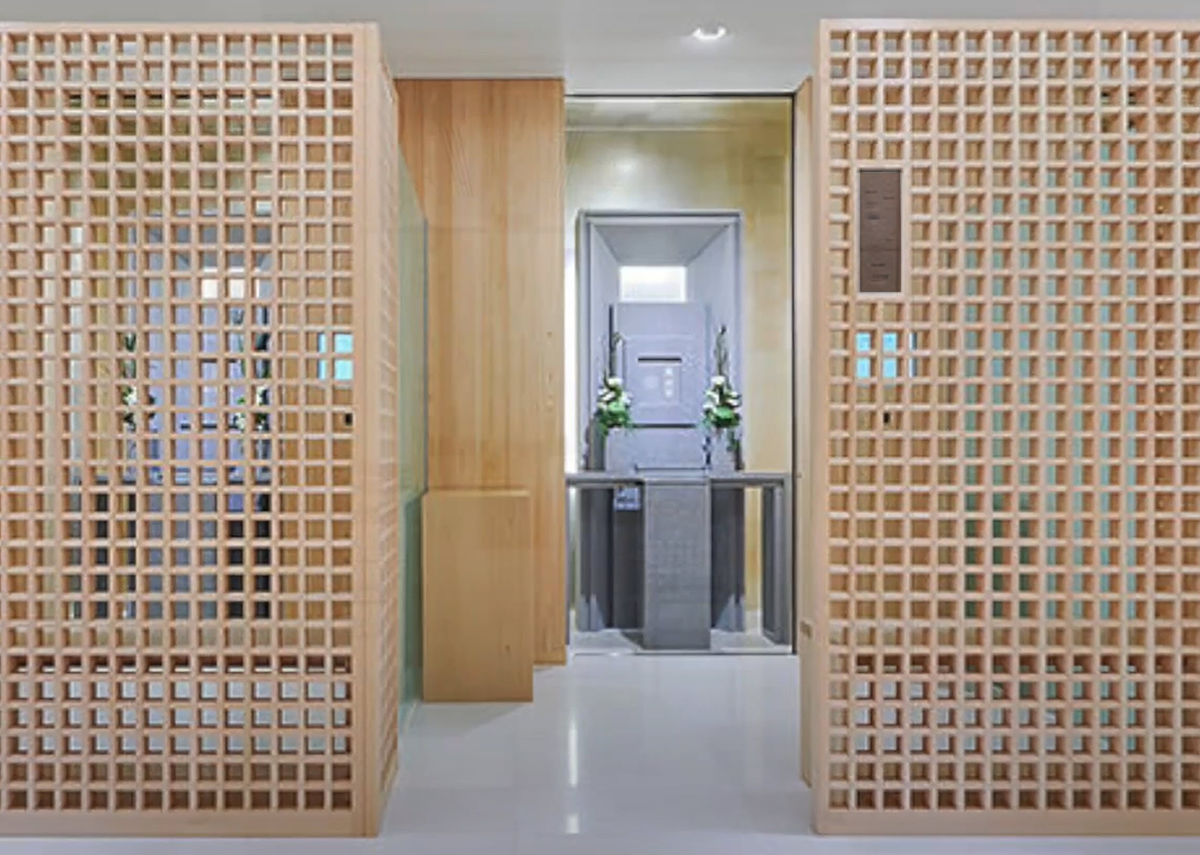The Smart Columbarium concept as a partial solution for urban planning and urban development (Smart Urban / Smart City)
Urbanization is progressing relentlessly. Cities worldwide are constantly growing in size. The global population has been increasing rapidly for years. With a world population now exceeding 7.6 billion, migration to urban centers, in particular, is increasing unabated. It is estimated that around three million rural residents migrate to urban centers every week, hoping for work and better living conditions. This development presents entirely new challenges for the provision of services and the management of the people living there.
In addition to the logistical challenges of urban megacities , it is also important to address the looming supply gaps in rural regions.
In 2021, around 77.5 percent of Germany's total population lived in cities. Looking at Japan, this figure is already over 91 percent. In 2000, it was 78.7 percent. At the same time, Japan's population is aging and shrinking at a record pace. Japan is also struggling with a labor shortage. This is essentially a similar situation to that in Germany. For Germans, this presents an opportunity to learn from and adopt the urban experiences and developments of the Japanese.
Suitable for:
In addition to sustainability and automation, which are reflected in our many terms such as Smart City, Smart Retail, Smart Mobility, Smart Energy or Smart Home, it is also important to compensate for the increasingly narrow living spaces and conditions through densification.
Suitable for:
The Smart Park or Smart Columbarium concept
The Smart Columbarium concept describes the possibility of reducing the space required for cemeteries by an impressive 90%. This innovative solution creates valuable space that can be used to create green leisure and recreation parks. This measure aims to increase the culture of well-being in the community and to provide residents with an attractive environment for their leisure activities.
More about it here:
- Smart Park: New green parks thanks to Smart Columbarium
Access code / password : daifuku
Combining competencies
It's not just experienced logistics professionals who have been thinking about the logistical challenges and further development in infrastructure, supply and delivery chains ( Last Mile Logistics ).
Suitable for:
The Federal Ministry of the Interior and Community, the Federal Office for Building and Regional Planning, the National Urban Development Policy, the Federal Program National Projects of Urban Development, and the urban development funding of the Federal Government and the Länder are already dealing with these topics and developments.
This makes it all the more necessary, interesting and exciting to bring together municipal officials, urban planners and landscape developers with experts from the operational area of Smart Logistics at one table.
Green Urban Labs - Strategies and approaches for municipal green development
“Growing municipalities are experiencing significant pressure on their open spaces. At the same time, green spaces are being increasingly used due to changing work, leisure, and living arrangements, leading to increased pressure on green and open spaces in densely populated urban areas. They are also increasingly being considered as potential sites for new housing construction. We need new solutions to these challenges.”
To this end, the Federal Institute for Research on Building, Urban Affairs and Spatial Development (not space travel!) has launched two research projects, one of which has already been completed:
- Green Urban Labs (September 2016 – June 2021)
- Green Urban Labs II – green infrastructure in the increasingly dense city (starts January 2021)
"Climate protection, economic and infrastructural adaptation processes, and demographic change pose major challenges for cities and municipalities. Green spaces in the city are diverse and have different functions, but always hold special significance. In growing cities, they positively influence the quality of life as places for recreation, sport, and social interaction."
"The competition for land use is also evident in the discussion about more affordable housing, where a balanced provision of green spaces in new development areas is often neglected. However, the availability and accessibility of green and open spaces for all population groups is important and a central municipal issue."
➡️ As urban density increases, the functionality of open spaces must be enhanced.
➡️ How can vertical greening at least partially compensate for horizontal green space losses?
"New urban developments must therefore also further develop urban open spaces. Preserving and developing urban green spaces is thus a central task and prerequisite for sustainable urban development."
"Climate protection, economic and infrastructural adaptation processes, and demographic change pose major challenges for cities and municipalities. Green spaces in the city are diverse and have different functions, but always hold special significance. In growing cities, they positively influence the quality of life as places for recreation, sport, and social interaction."
"The competition for land use is also evident in the discussion about more affordable housing, where a balanced provision of green spaces in new development areas is often neglected. However, the availability and accessibility of green and open spaces for all population groups is important and a central municipal issue."
Green Urban project using the cemetery area in Dresden
“Since 2017, twelve model projects within the ‘Green Urban Labs’ research field have tested effective strategies for strengthening urban green spaces. Jena broke new ground by creating climate oases in disadvantaged neighborhoods to combat summer heat. The city of Ludwigsburg explored untapped potential in industrial areas. The significance and transformation of allotment gardens were the focus in Bremen and Rostock. Other model projects, such as those in Weinstadt and Halle, tested tools for ‘participatory parks’ and new approaches to civic engagement.”
"The state capital Dresden was awarded a grant of 50,000 euros under the federal program Green Urban Labs II for its plans to redesign a section of the Evangelical Lutheran New Annen Cemetery."
"From a total of 40 applications from 30 municipalities, the jury of the Federal Institute for Research on Building, Urban Affairs and Spatial Development (BBSR), commissioned by the Federal Ministry of the Interior, Building and Community (BMI), selected six model projects that test innovative approaches to strengthen inner-city green spaces and develop new green and open spaces."
"The aim is to develop a public park for the densely populated Dresden district of Löbtau from a cemetery area no longer used for burials. Civic initiatives should be involved and the connection to the cemetery should be preserved."
Xpert.Digital – Konrad Wolfenstein
Xpert.Digital is a hub for industry with a focus on digitalization, mechanical engineering, logistics/intralogistics and photovoltaics.
With our 360° business development solution, we support well-known companies from new business to after sales.
Market intelligence, smarketing, marketing automation, content development, PR, mail campaigns, personalized social media and lead nurturing are part of our digital tools.
You can find out more at: www.xpert.digital – www.xpert.solar – www.xpert.plus


